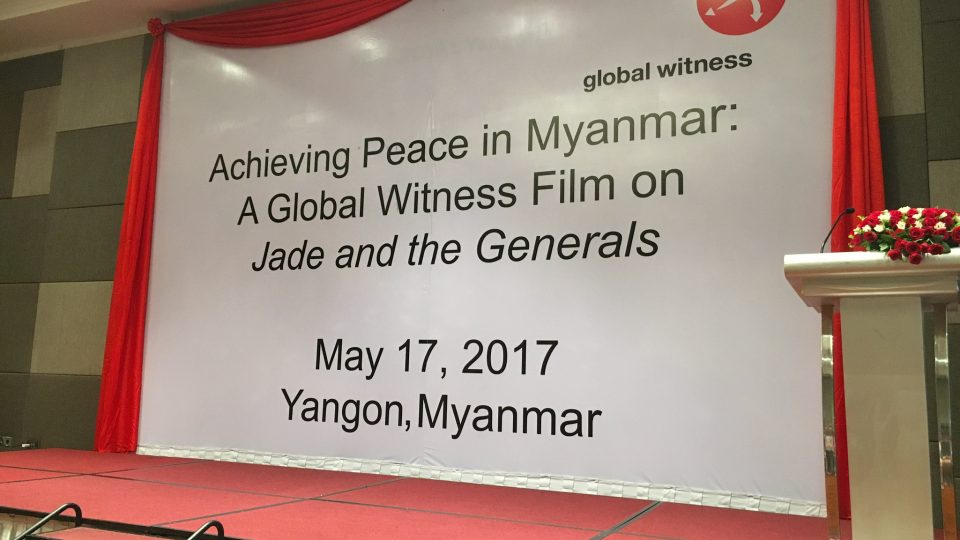Myanmar authorities today prevented a screening of the new short documentary “Jade and the Generals”, which exposes the links between armed conflict and the jade industry in Kachin State.
The film, which was released by Global Witness, was scheduled for a public screening at the Park Royal Hotel at 1pm today. However, several hours before the screening, the organizers were told it would not be permitted.
Global Witness campaign leader Paul Donowitz read a statement from the Park Royal Hotel, which said the screening was not permitted because all film screenings must receive “written permission from the Yangon Region government.”
In place of the screening, the event proceeded with an explanation of the content of the film from Global Witness experts and an exhibition of photos taken in Kachin State jade mines.
“Jade and the Generals” is a follow-up on a report released by Global Witness from 2015, which revealed that Kachin State mines produced up to $31 billion in 2014, with most of the revenue going directly into the pockets of a few military-affiliated families.
The film’s release comes shortly before the second session of the 21st Century Panglong Conference – a gathering organized by State Counsellor Aung San Suu Kyi as an attempt to make peace between the Myanmar government and the country’s many ethnic armed organizations.
The effort has received criticism for not addressing the root causes of ethnic conflict in Myanmar and for excluding organizations whose input will be crucial in ending the conflict.
Global Witness also asserts that a fair settlement must require military-affiliated families and companies to relinquish their control of jade profits for the benefit of local people. This prospect has prompted the companies to accelerate the rate of jade extraction in order to maximize their profits.
“They want to take all the cookies out of the cookie jar before Aung San Suu Kyi comes and takes them away,” said analyst Juman Kubba.
Discussing the forced cancellation of the screening, Donowitz said: “In democratic societies its important that oppositional voices are given space,” adding that open debate is critical to resolving issues related to conflict, corruption, and resource exploitation.
“We will continue to speak out, and we look forward to continuing our work in Myanmar,” he said.
You can watch the full documentary here:





